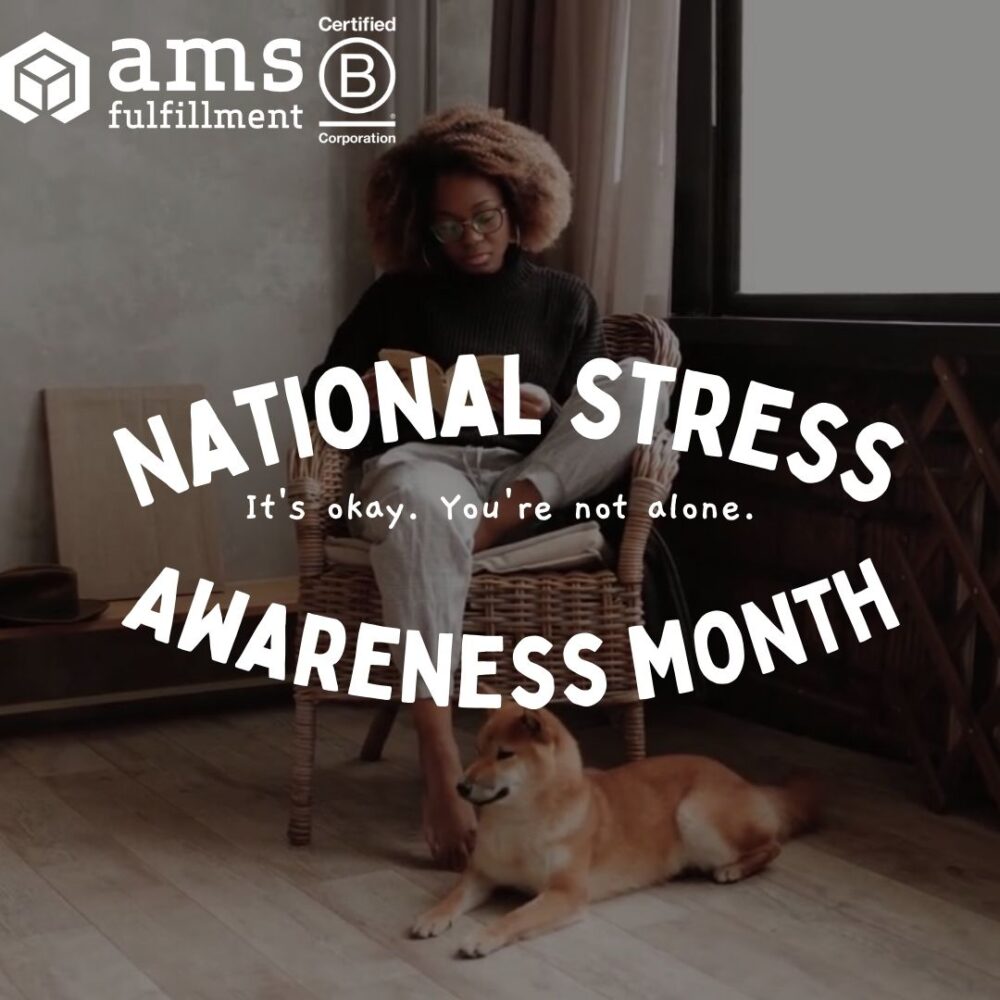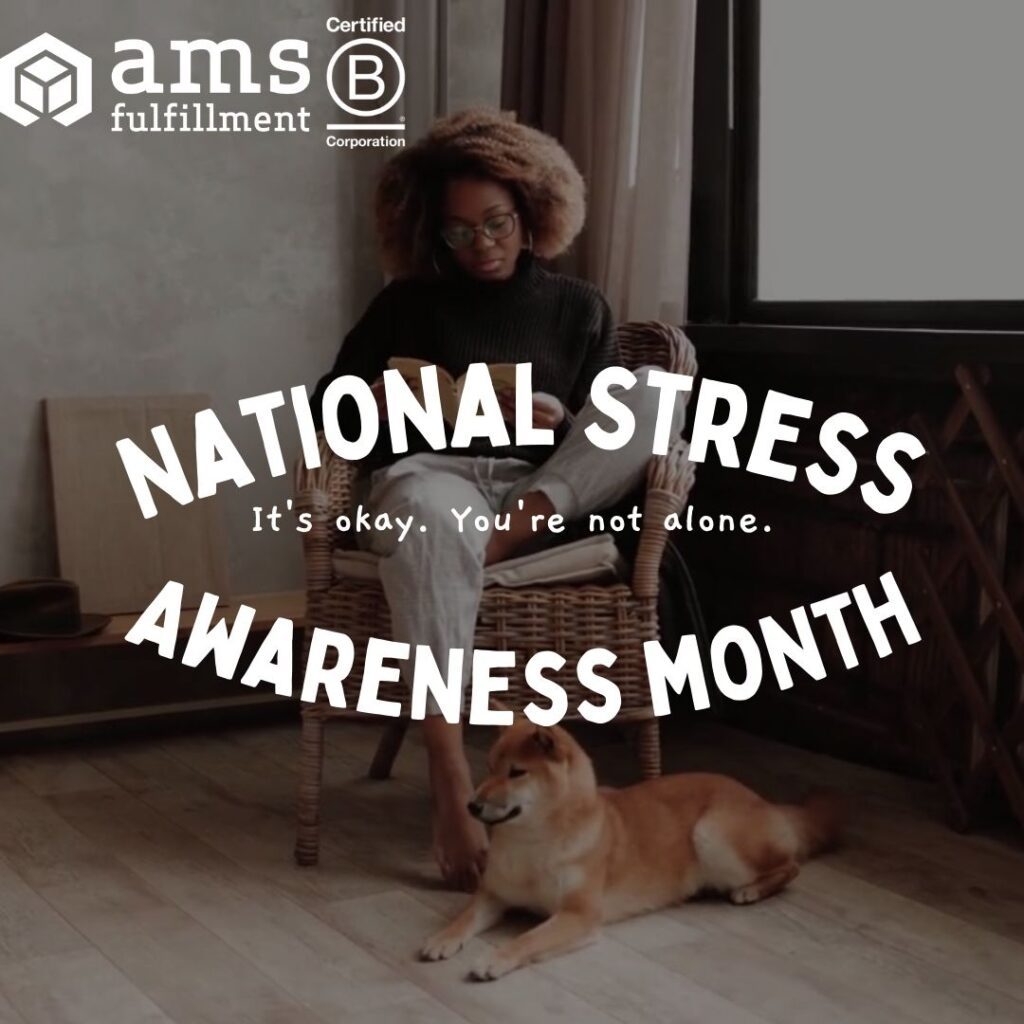
For information on stress we went to the National Institute of Health (NIH). The NIH provides guidance for employers, including a recommendation for the Employee Assistance Program (EAP). AMS does offer the EAP free to employees and their households, so help is available. AMS employees have access to EAP licensed mental health professionals 24 hours a day, seven days a week, and this includes eligible dependents.
Where does stress come from?
The stress we deal with can come from many origins. Probably the most common are financial and family health, and we encourage our employees who are experiencing these kinds of stress to talk to HR, utilize the EAP, and speak with supervisors if appropriate. At AMS we care, and we want to help.
Other types of stress can come from social media and news headlines affecting the mind. There are far too many ‘fear’ messages, created for the purpose of ‘clicks’, and these messages are bound to affect our minds and spirits. If the headlines are creating fear, we encourage readers to put the phone or computer down and go for a walk, in nature if possible.
Is there a positive side of Stress?
There are some arguments in favor of a small amount of stress if it is short-lived. An article in Bravowell.com [LINK] states: “Stress that lasts for a short time can boost job performance while increasing alertness. Healthy amounts of stress can even help build relationships essential for our health. Stress is also vital for our memory. It allows us to recall the inevitable consequences of our actions to help us avoid them again in the future.”
It is the chronic stress we need to avoid, and we are wise to take steps to reduce stress if we notice it becoming chronic and harmful to our bodies and minds.
Stress Reduction
Exercise:
The most common recommendation for stress reduction is exercise. Exercise does have a very positive effect in reducing stress. Some of us may work out in the gym, some may go for a run, some may play tennis, some may simply walk the dog – whatever avenue you take with regard to exercise, it will be a net positive.
Breathing:
Deep breathing exercises are a very effective method of reducing stress. Chinese medicine has ‘energy work’ called Qigong (pronounced Chi Kung) that can be utilized while sitting at the desk or taking a moment to relax. It involves a slow inhale while raising the hands from hips to shoulders, and a slow exhale while lowering the hands.
Meditation:
Another method of stress reduction is meditation. Meditation is a practice of calming the mind, slowing the thoughts, centering, and being present in the body and aware and observant of self. There are meditation teachers and meditation groups available online, and these can be helpful. There is also a technique developed by physicists that can bring about relaxation by slowing brainwaves – it’s called binaural beats, and a quick google search will bring information.
Stress and Disease
Returning to the NIH website [LINK] we see a very extensive writing on stress and disease. Quoting from the article: “The critical factor associated with stress is its chronic effect over time. Chronic stressors include daily hassles, frustration of traffic jams, work overload, financial difficulties, marital arguments or family problems. There are, of course, many more things that can cause stress, but these are the stressors commonly encountered in daily life. Instead of discharging this stress, however, we hold it inside where its effects become cumulative.”
See your Doctor if Needed
We encourage our valued employees, clients and friends to not ignore stress if it is chronic. Please utilize the Employee Assistance Program and find help if help is needed. If your level of stress is such that it concerns you regarding disease, see your doctor. Chronic and severe stress can cause high blood pressure, heart disease, ulcers and other issues that should never be ignored.
Care for Yourself
When you are stressed or anxious make sure you are continuing to look after yourself. Take time to relax when you need to and learn to say no to requests that are too much for you. The answer to prevention of disease can be found in communication, empathy, and sincere care. Employees are encouraged to contact HR for more information on EAP, and please do not hesitate to speak to your supervisor if you’re feeling overwhelmed by stress.
One More Thing!!
AMS is offering a brand new educational course available to all employees entitled “Mental Health First Aid in the Workplace.” Upon completion of the course, students will receive a NCBH Mental Health First Aid Certificate. For more information on this course, please contact [email protected].
** ** **
AMS Fulfillment is a Certified B Corporation whose commitment is to put People and Planet before Profit. We seek to B the Change we wish to see in the world.




